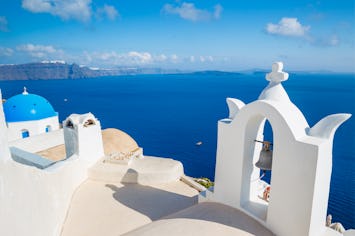
COVID 19: You can change your booking on most of our boats if your travel plans are affected by coronavirus.
See here for more details
Ladislav

Ladislav Junačko is a freelance writer, born in the Croatian capital of Zagreb. Before starting his writing carrer, Ladislav worked as a project manager for a translation agency in Zagreb. As a history buff and a long-time admirer of the english language, it was only right for Ladislav to shift his attention towards writing content for HighSails. Ladislav is a big sports fan, spending his weekends playing football, basketball or badminton. A perfect sailing holiday for Ladislav would include a visit to the charming town of Komiža on the island of Vis, sipping mojitos and basking in the sun.
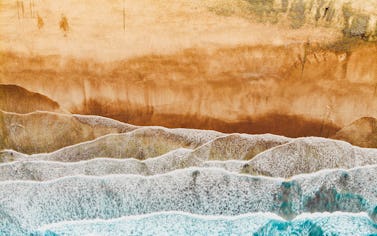
Canary Islands Destination Guide - Year-round adventure
Nestled in the Atlantic Ocean, about 100 kilometres off the coast of Africa and a full 1,000 kilometres away from the Spanish mainland, Canary Islands are a mesmerising volcanic archipelago full of natural beauty. A truly unique region of Spain, tucked far away from its mainland, Canary Islands are a tropical oasis that almost touches the African continent. You will be welcomed by intoxicating lush forests, towering volcanoes and their surrounding lunar-like landscapes, stunning sandy coves and dunes.
Ladislav - 03 May 2021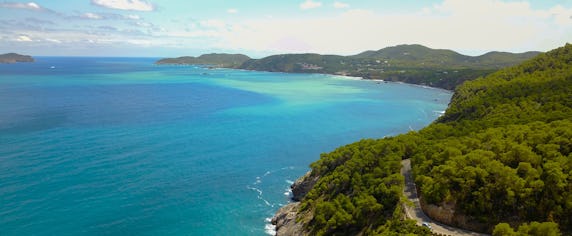
The Balearic Islands - Europe’s party centre
One of Spain's most popular destinations, the Balearic Islands, form a stunning archipelago located in the western Mediterranean Sea, near the eastern coast of the Iberian Peninsula. There are four large islands in the archipelago: Mallorca, Menorca, Ibiza, and Formentera, with several smaller islands and islets scattered around the bigger islands. These are actual Mediterranean islands with plenty of sunshine and warm weather almost year-round.
Ladislav - 03 May 2021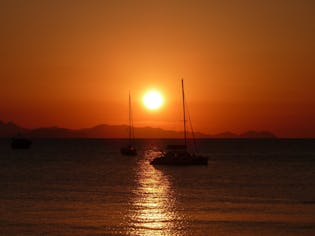
The Ultimate Furnari Sailing Guide - Explore Sicily
Founded in the 14th century, Furnari sits near the northeast coast of Sicily, 55 kilometres west of Messina and 180 kilometres east of Palermo. The town overlooks the valley north towards the Tyrrhenian Sea and offers stunning views of the mountains to the south. Here you will be absorbed by the slow pace of everyday life and relaxed atmosphere, typical of the small Sicilian village.
Ladislav - 18 April 2021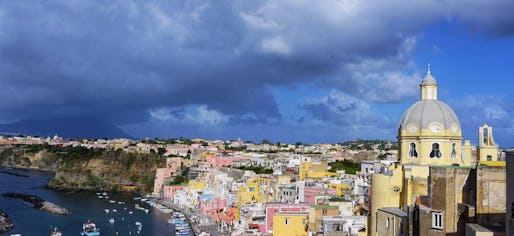
Procida sailing guide & sailing itineraries - Explore the volcanic beauty
Hiding in plain sight, Procida is a small island a stone's throw away from Naples' city, slowly becoming one of the favourite vacation spots for local and foreign tourists alike. Procida is one of the most beautiful Italian islands, captivating visitors with its lovely combination of colours present in the local architecture and lush vegetation. Located in the Bay of Naples in southern Italy, Procida sits between the mainland and the bigger island of Ischia. The small island is densely populated, with around 10,000 residents living in an area that is just over four square kilometres.
Ladislav - 18 April 2021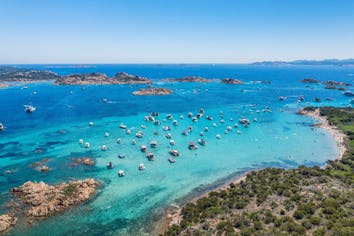
The ultimate Cannigione sailing guide - stunning Sardinia
Beautifully positioned on the northeastern part of Sardinia, Cannigione was originally a fishing village that has transformed over time into a renowned resort. Cannigione is, in fact, a district of the town of Arzachena, located in the province of Olbia-Tempio, about 10 kilometres southwest of Porto Cervo. The increasing popularity of this small seaside village is due to a stunning coastline that offers a long stretch of golden sand and crystal clear waters. Visiting this charming Sardinian village, you will be able to explore the heart of Costa Smeralda ("Emerald Coast"), a stunning and trendy stretch of coast on the island of Sardinia.
Ladislav - 18 April 2021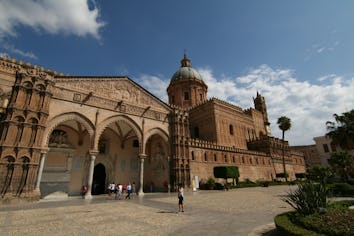
Palermo sailing guide & sailing itineraries - Discover true Sicily
Palermo is the regional capital of Sicily - the largest island in the Mediterranean and of immense strategic importance throughout history. Positioned centrally on the Mediterranean, Sicily and Palermo served as a stronghold connecting Africa and Europe. The list of past powers that held control of the city includes the Phoenicians, the Carthaginians, the Greeks, the Romans, the Arabs, the Normans, the French, and others. After hundreds of years of varying influences, Palermo is a vibrant metropolis where one can experience many different cultures and styles.
Ladislav - 18 April 2021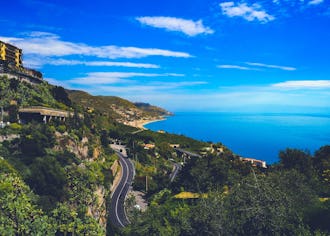
Capo d'Orlando sailing guide - Explore Sicily & the Aeolian islands
Located on the northern coast of Sicily, Capo d'Orlando is a former fishing village that has transformed into a popular tourist resort over the last couple of decades, mainly thanks to its spectacular coastline and beautiful beaches. Capo d'Orlando sits between the towns of Milazzo and Cefalu on the northern coast of Sicily, some 140 km east of Palermo. Arriving here, you will be greeted by a charming little town positioned by a long sandy beach that stretches for 2 km along the city's shoreline.
Ladislav - 18 April 2021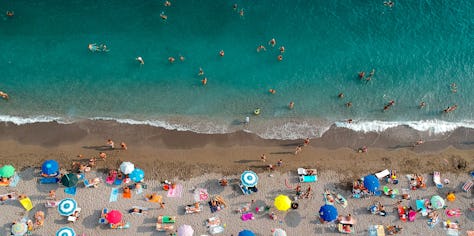
Salerno sailing guide & sailing itineraries - Touch the Amalfi Coast
Acting as a gateway to the stunning Amalfi coast in southwestern Italy, Salerno is an old port city and capital of the Campania region. Located in the Gulf of Salerno on the Tyrrhenian Sea, Salerno has been an essential strategic harbour on the Mediterranean sea, dating back to prehistoric times. Salerno is a city with a rich and vibrant past, which prospered immensely during the Middle Ages and the Renaissance.
Ladislav - 18 April 2021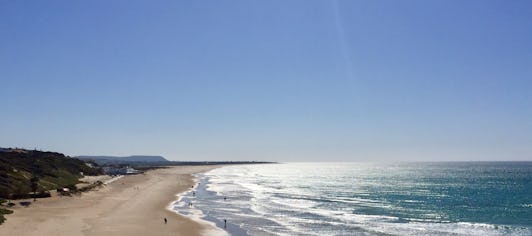
Andalusia destination guide - The essence of southern Spain
Occupying the south of the Iberian peninsula, Andalusia is the only European region with both Mediterranean and Atlantic coastlines, offering an abundance of sunshine and warm temperatures. Andalusia is the land of culture, history, and fiestas where one can visit everything from outstanding monuments to various natural landscapes. As the sun sets, everyone is welcome to the vibrant Andalusian nightlife, where sampling delicious local cuisine is the thing to do.
Ladislav - 05 April 2021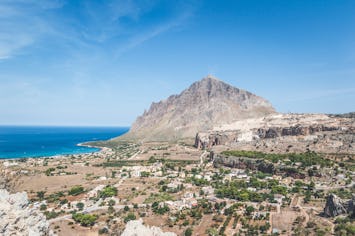
Sicily Destination Guide - Land Of Sun And Fire
Sicily is Italy's largest and most densely populated island, located in the Mediterranean Sea just 160 km northeast of Tunisia. The island sits just west of the Apennine Peninsula's southern tip, separated from the mainland by the Strait of Messina. The regional capital is the city of Palermo, situated on the northern coast of the island. Sicily is a stunning place of immense history and rich culture, where people have met and prospered for millennia, existing in the shadow of Europe's largest and most active volcano - Etna.
Ladislav - 27 March 2021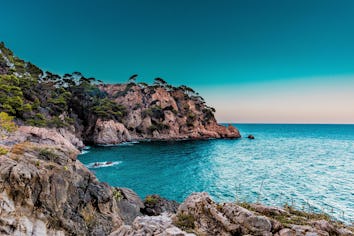
Spain Destination Guide - Sun, summer & siesta! | HighSails.com
Spain is the home of the siesta, and the epitome of the casual way of living, inviting everyone to explore and enjoy its natural and cultural beauty. Passionate, sophisticated and devoted to living the good life, Spain is equally a stereotype come to life and one of the more unique countries you'll ever visit! This diverse country shares the Iberian Peninsula with Portugal at the western end of the Mediterranean Sea and borders France to the north, past the Pyrenees mountain chain. Due to its geographical position at the western end of the European continent, Spain was always a meeting point of different cultures and one of the first places to connect the Old World (Europe) with the New World (Americas).
Ladislav - 27 March 2021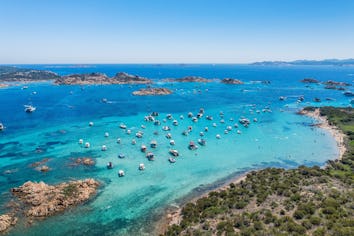
Sardinia Destination Guide - Home Of The Emerald Coast
Voyage across the emerald Tyrrhenian Sea to the island of stunning coves and white sandy beaches - Sardinia. Situated in the middle of the Mediterranean Sea, Sardinia is among the top sailing destinations in Italy, with coastal regions like Costa Smeralda attracting visitors from all over Europe. The island's luscious natural habitats in the interior meet up with one of the prettiest coastal regions in all of Europe, presenting endless coves and sandy beaches.
Ladislav - 27 March 2021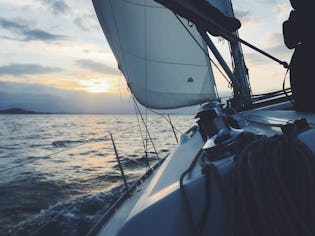
Five things you wish you knew before your sailing trip
Congratulations on completing your sailing trip! We hope you had a good time and are itching to give it a second go as soon as possible. Sailing is a beautiful experience, meant to connect you with the elements and provide you with a unique opportunity to explore multiple locations in one go. However, a sailing vacation is much more different than your average stay at a resort or hotel: Staying on a ship for a prolonged period requires some preparation and planning. This text, sponsored by good old fashioned hindsight, will help you prepare for your next sailing adventure even better!
Ladislav - 14 March 2021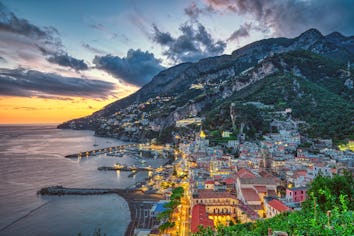
Italy Destination Guide - Majestic Cities and Spectacular Coastlines
The Mediterranean country of Italy is located in the southern part of central Europe, occupying the boot-shaped Apennine Peninsula. Italy’s geography varies from the snow-covered peaks of the Alps mountain range in the north to the sunny shores of the island of Sicily in the south. Including the two biggest islands on the Mediterranean, Sardinia and Sicily, Italy has over 7,500 km of coastline on the Adriatic, Ionian and Tyrrhenian sea.
Ladislav - 26 February 2021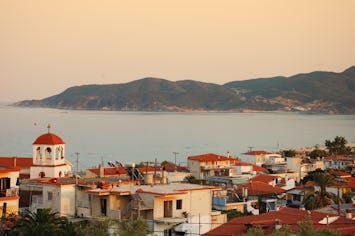
Greece Destination Guide - The Cradle of Western Civilisation
Greece, located in southern Europe, is the southernmost country on the Balkan Peninsula. It is home to over 2,000 islands and has the longest coastline in the Mediterranean, and the 11th longest in the world. Despite its extensive coastline, 80% of Greece is mountainous. Mythical Mount Olympus is the highest peak in Greece, standing at almost 3,000 m. These geographical features forced the ancient Greeks to focus their expansion towards the sea. A mighty maritime nation, Greeks settled many colonies throughout the Mediterranean. They established trade connections with Africa and Asia and created some of the earliest naval charts and maps known today. Ancient Greeks were spread across various independent city-states, known as polis. The most prominent and most influential were the city-states of Athens and Sparta. Often referred to as the cradle of Western civilisation, ancient Greece is home to some of the most brilliant political, philosophical, architectural, cultural and military minds in all of human history.
Ladislav - 26 February 2021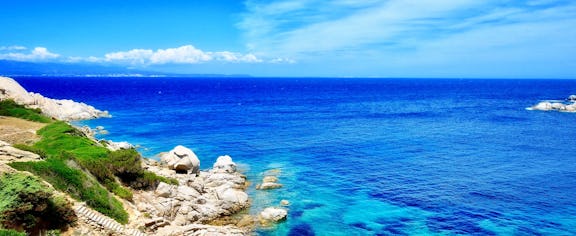
Top Portisco Sailing Guide - The Heart Of The Costa Smeralda
On the northeastern coast of the Italian island of Sardinia lies the fabulous Costa Smeralda. Here you will find Portisco, a small coastal village with beautiful beaches and stunning sea.
Ladislav - 17 January 2021
7 authentic meals to prepare while sailing the Adriatic
When sailing, you will experience certain special moments that you would take for granted if you were on solid ground. Sleeping and eating are basic everyday tasks that have a unique charm when you're on a boat. The slow and monotonous rocking of the boat at night can present problems for some but is also an excellent way to lull yourself to sleep. The same thing applies to food, as meals shared and prepared on board are that much tastier and fulfilling. Additionally, the struggle of preparing a full meal in limited surroundings of onboard kitchens will push your cooking capabilities to their limits.
Ladislav - 14 December 2020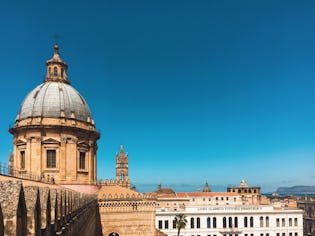
Palermo Destination Guide - Where Cultures Intertwine
Situated on the northwestern coast of the island of Sicily, by the Gulf of Palermo in the Tyrrhenian Sea, Palermo is revered for its history, culture, architecture and gastronomy.
Ladislav - 13 December 2020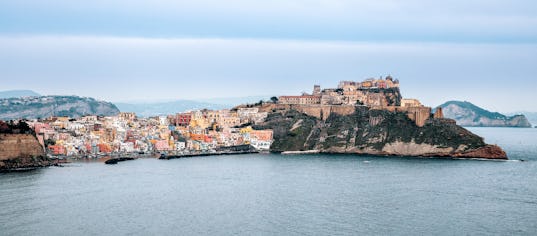
Procida Destination Guide - The Undiscovered Gem
Located off the coast of Naples in southern Italy, Procida is a magical little island, full of stunning natural beauty and yet unaffected by mass tourism. This winning combination makes visiting the island a truly relaxing experience, with the island charming its visitors at every opportunity.
Ladislav - 13 December 2020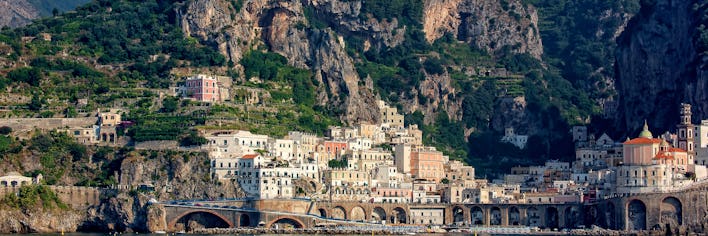
Salerno Destination Guide - The Gateway To The Amalfi Coast
Ladislav - 13 December 2020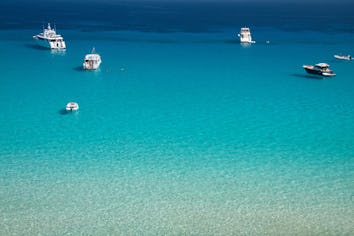
Capo d'Orlando - The Paladin's Town
Legend has it the town was founded during the Trojan War, on the ruins of an ancient village called Agatirno. Capo d'Orlando owes its name to the Paladin Orlando, the famous paladin who served under Charlamagne and found sanctuary here during a crusade to the Holy Land.
Ladislav - 07 December 2020
Sailing Destinations - How To Choose The Best Sailing Destination
Ladislav - 06 December 2020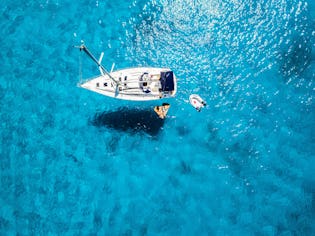
Types Of Boats - How To Choose The Right Boat For You Sailing Trip
Ladislav - 30 November 2020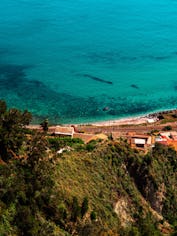
Furnari Destination Guide - Discover The Coastal Citrus Groves And Sprawling Vineyards
Furnari is a small hillside town in the province of Messina, located on the largest Italian island - Sicily. The town sits about 180 kilometres east of Palermo and some 55 kilometres west of Messina. Furnari was founded in the 14th century when baron Filippo Furnari erected a castle around which the village of Furnari developed.
Ladislav - 29 November 2020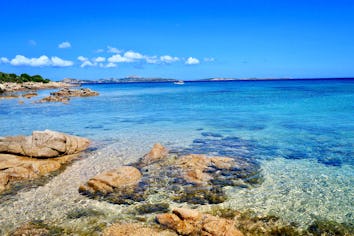
Cannigione Destination Guide - Secluded Coves And Beautiful Sandy Beaches.
Located in the northeastern part of the Italian island of Sardinia, Cannigione is one of the districts of the town of Arzachena and a popular tourist resort. Cannigione sits about 20 km north of the town of Olbia and 9 km west of Porto Cervo. Known as an important fishing village at the turn of the 20th century, Cannigione has transformed into one of the most popular tourist destinations in Sardinia today. Situated in a deep inlet, at the mouth of the San Giovanni river, the area around Cannigione is full of secluded coves housing beautiful sandy beaches. The village of Canniogione boasts a large and well-protected port, making it one of the top sailing destinations in Sardinia.
Ladislav - 29 November 2020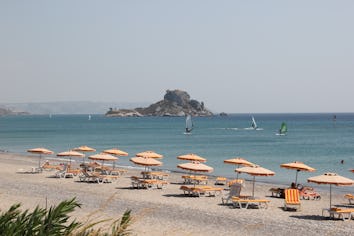
The Ultimate Kos Sailing Guide - Stunning Dodecanese Islands Within Touching Distance
The Greek island of Kos belongs to the Dodecanese island chain, located in the south-eastern Aegean Sea. Kos has 112 km of coastline and is the third-largest Dodecanese island, after Rhodes and Karpathos. The island is located between Kalymnos and Nisyros, just 10 NM south of the Turkish coastline.
Ladislav - 07 November 2020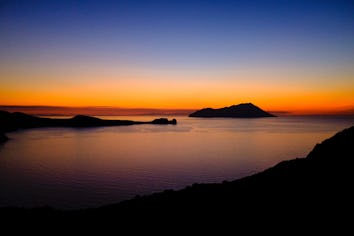
The Ultimate Lavrion Sailing Guide - Quiet Bays And Beautiful Beaches
Lavrion (also known as Lavrio or Laurium) is a Greek town located on the southeastern coast of the Attica region, 60km southeast from the capital of Athens. The city is positioned in a wide bay overlooking the Makronisos island to the east.
Ladislav - 07 November 2020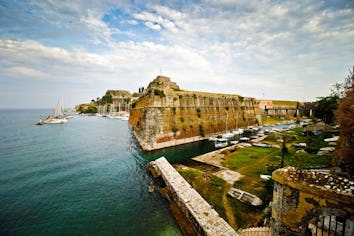
Ultimate Corfu Sailing Guide - Natural Beauty and Stunning Beaches
Corfu is the northernmost Greek island in the Ionian Sea, located just off the coast of Albania and Greece. Covering an area of 590 km2, Corfu is the second-largest Ionian island and the 7th largest island in Greece. Due to its size, the island offers plenty of geographical diversity, varying from tall mountains to beautiful sandy beaches.
Ladislav - 07 November 2020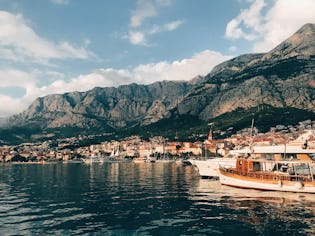
Top 10 Charming Croatian Harbours And Marinas
The unique charm of the Croatian coast, which combines stunning natural beauty and vibrant historical towns, leaves a lasting impression on all who visit this popular summer destination. Millions of tourists spend their holidays swimming in the warm Adriatic, lounging on some of the most beautiful beaches in Europe and sailing the nearly 1,000 Croatian islands.
Ladislav - 25 October 2020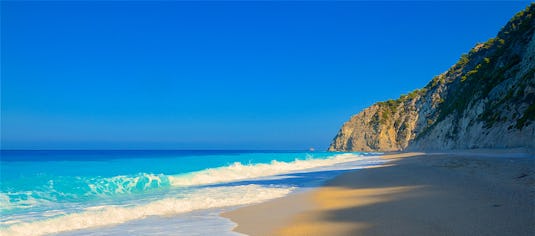
The Ultimate Lefkada Sailing Guide - Ionian Paradise Awaits
Located in the Ionian Sea, Lefkada (also known as Lefkas) offers ideal winds and calm sea, perfect conditions for an unforgettable sailing vacation. The island is home to some of the most beautiful beaches in all of Greece, making Lefkada one of the top summer destinations.
Ladislav - 20 October 2020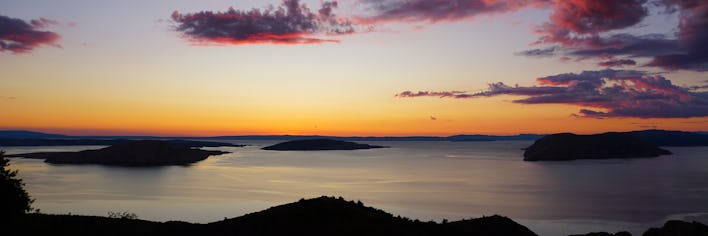
Top 10 Secluded Croatian Islands For A Peaceful Getaway
Long gone are the times when Croatia was considered an unknown and exotic tourist destination. Each summer, millions of tourists from all over Europe flock to this Mediterranean country in search of a relaxing vacation. As Croatia is relatively small, the number of visitors can transform the coastline and its islands into a rather crowded place, making it increasingly difficult to enjoy the breathtaking beauty of Croatia’s beaches and sea.
Ladislav - 20 October 2020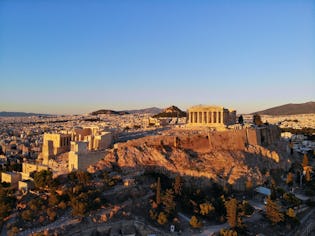
The Ultimate Athens Sailing Guide - Experience Cultural Histroy And Natural Beauty
Athens is one of the oldest cities in human history. This Greek metropolis, considered to be one of the cultural capitals of the world, is home to some of the most brilliant minds in history. Impressive historical landmarks like the Parthenon serve as a testament to the city’s rich history, spanning 3,400 years.
Ladislav - 12 October 2020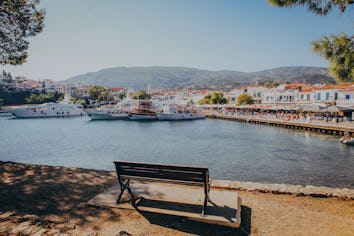
Skiathos Destination Guide - The Little Island With A Huge Heart!
Ladislav - 12 October 2020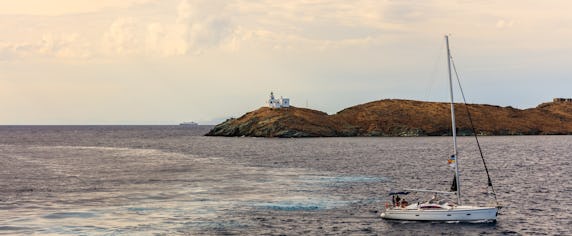
Lavrion Destination Guide - The Silver Mine of Greece
The Greek town of Lavrion (also Lavrio or Laurium) sits in the southeastern part of the Attica region, 60 km southeast from the Greek capital of Athens. This coastal city sits in a wide bay overlooking the Makronisos island to the east.
Ladislav - 06 October 2020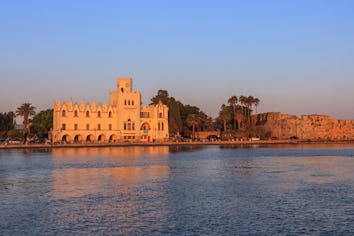
Kos Destination Guide - 2,500 Years of History and Untouched Natural Beauty
The Greek island of Kos is situated in the southeastern Aegean Sea and is the third-largest island of the Dodecanese island chain. The island sits between the islands of Kalymnos and Nisyros and is the second most visited Dodecanese island after Rhodos.
Ladislav - 30 September 2020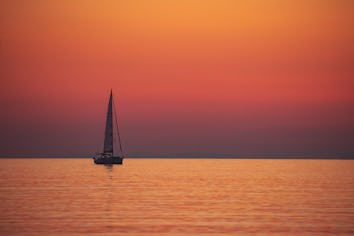
Seget Donji Sailing Itineraries - Set Sail From This Tranquil Fishing Village
Seget Donji is a small settlement on the Croatian coast, located just 2 km from the historic town of Trogir. According to historical sources, the village was settled in the 16th century by refugees fleeing from the Turkish invasion. To protect the local population, a rectangular fort, resembling the famous Diocletian's Palace in Split, was constructed. Seget Donji was a part of the fortification system built around Trogir, including the seven settlements of Kaštel near Split.
Ladislav - 17 September 2020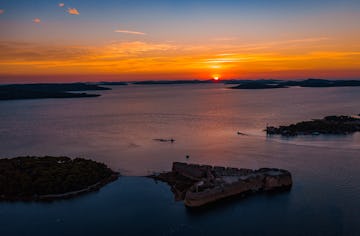
Šibenik Sailing Itineraries - Explore Croatia's Oldest Native Coastal Town
Šibenik, a historically significant coastal city in Croatia, is situated where the river Krka flows into the Adriatic Sea. Šibenik is the third-largest city in the Croatian region of Dalmatia and serves as a transport, industrial, cultural and tourist hub of central Dalmatia. Unlike other towns on the Adriatic coast, which were founded by the ancient Romans or Greeks, Šibenik was established by Croats and is the oldest native Croatian coastal town. The first mention of the city dates back to 1066, to a Charter of the Croatian King Petar Krešimir IV, who made Šibenik the capital of his kingdom. That is why Šibenik is also referred to as "Krešimirov grad" (Krešimir's city). Šibenik is a city rich with history, cultural heritage and impressive architecture. The main church in Šibenik, the Cathedral of St. James, is on the UNESCO World Heritage list. Šibenik is also famous for its four fortresses: St. Nicholas Fortress, St. Michael's Fortress, St. John Fortress and Barone Fortress, all strategically placed across the city area. Each of them offers views of the city, sea and nearby islands and attracts thousands of tourists each year.
Ladislav - 17 September 2020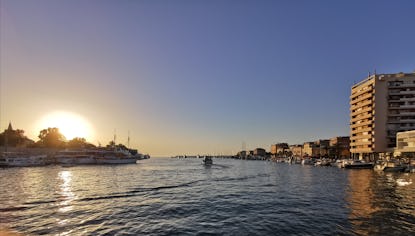
Zadar Sailing Itineraries - Set Sail From The Croatian Coastal Centre
Zadar sits almost centrally on the Croatian coast, making it an ideal starting point for your sailing holiday. Venturing north, islands of Pag, Lošinj, Cres, Rab and Krk and all their beauty await you. Sailing south from Zadar, the main attraction that awaits you is the magnificent Kornati National Park. This unforgettable archipelago is an oasis of natural beauty and one of the top sailing destinations on the Mediterranean.
Ladislav - 17 September 2020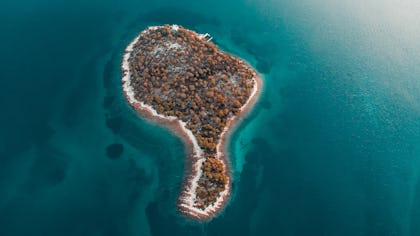
Sukošan Sailing Itineraries - The Gateway To Croatia's National Parks
Sukošan is a small Croatian coastal town located in the Zlatna Luka bay, some 10 km southeast from the city of Zadar. This quaint Dalmatian town with a population of only 3,000 has a rich tourism history, which has been growing since the 1920s. Similar to most towns on the Adriatic, Sukošan boasts a rich history, spanning back to the ancient Romans. There are several well-preserved churches worth visiting, as well as the remains of old city gates and walls. Sukošan also makes an ideal starting base for you sailing holiday due to its proximity to several National Parks like the National Park Kornati, National Park Paklenica, Plitvice Lakes National Park and nature parks Telaščica. For those looking for more culture, historical cities of Zadar and Šibenik are a short car ride away. Sukošan is also home to one of the biggest marinas on the Croatian side of the Adriatic, the Marina Dalmacija. The marina offers 1,200 berths and 500 dry berths, and it even has its own private beach.
Ladislav - 13 September 2020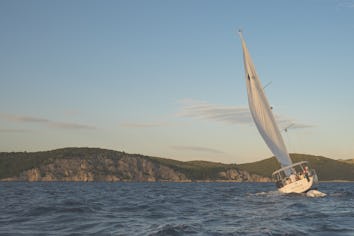
Kaštel Gomilica Sailing Itineraries - Seven Spectacular Settlements
The small coastal town of Kaštel Gomilica is part of a unique cluster of villages located on the Croatian coast between the cities of Trogir and Split. Kaštel Gomilica is situated in the Bay of Kaštela and is the second settlement you will happen upon when heading from Split to Trogir.
Ladislav - 13 September 2020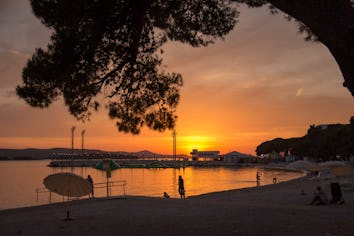
Biograd Sailing Itineraries - The Best Way To Croatia's National Parks
Biograd na Moru, often referred to as Biograd, is a small coastal town located in central Dalmatia. The town is nestled between two big Croatian coastal cities, sitting 30 km south of Zadar and about 50 km north of Šibenik. Biograd sits in the Pašman bay, just opposite the island of Pašman. Due to its location and proximity to several national and nature parks, Biograd has developed a robust nautical infrastructure. Following the latest expansions and upgrades, the Kornati Marina in Biograd now boasts 805 berths, out of which 70 are dry berths. The marina is also a proud recipient of the Blue Flag. A symbol of its high standard in the protection of the sea and coastline around it. It is the 6th year in a row that the award has been received. Biograd is a perfect starting location for exploring some of the most beautiful spots on the Croatian coast and an ideal start of an unforgettable sailing holiday.
Ladislav - 13 September 2020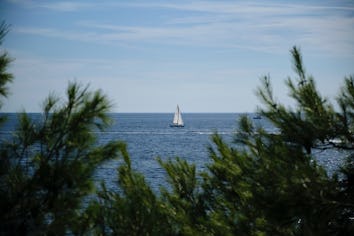
Istria and Kvarner Sailing Itinerary - The Ultimate in Peace and Tranquility
The Croatian region of Istria is located on the largest peninsula in the Adriatic, which bears the same name. The Istrian peninsula is situated between the Gulf of Trieste and the Kvarner Gulf. Istria is a diverse region with a mountainous interior, fertile valleys and a beautifully indented coast. Due to its rich history, heavily influenced by the ancient Romans and later the Venitian Republic, Istria is filled with significant historical landmarks and beautiful architecture. Today, Istria attracts food and culture seeking visitors, looking to experience exquisite local dishes and world-famous wine. Music festivals and concerts organised in bigger cities like Pula, Rovinj or Umag attract lots of visitors from all around Europe each summer. Despite its northern location, Istria still enjoys a Mediterranean climate, and its beautiful coast and islands present an
Ladislav - 07 September 2020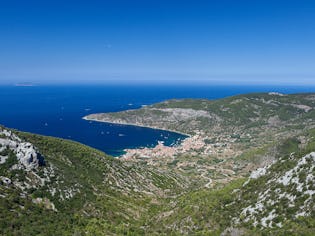
Vis Sailing Holidays
The Croatian island of Vis sits southwest of the island of Hvar and west of the island of Korčula. It is located just 60 NM from the Italian coast, making it the furthest island from the Croatian coast. This charming island, famous for its fishing industry, boasts a rich history. The island originally got its name from the Greek settlers who founded a colony here in the 4th century BC and named it Issa. Following Greek rule on the island was succeeded by the ancient Romans, and then another dominant force in the Mediterranean, the Venetian Republic, ruled from the 15th century until the end of the 18th century. The local dialect also dates back to this time with its Venetian origin. During the second half of the 20th century, the island was used as a Yugoslavian military base which saw the island isolated from all foreign visitors until 1989. However today Vis is a popular tourist destination, attracting visitors with its spectacular beaches, unspoiled nature and rich cultural history.
Ladislav - 26 August 2020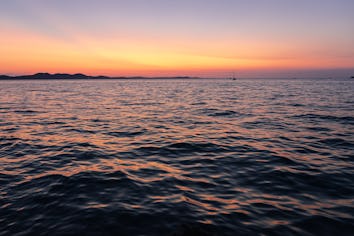
Zadar Sailing Guide
Zadar is a Croatian coastal city located in the region of Dalmatia. Zadar’s central location on the Croatian coast makes this historic city an ideal starting location for your sailing holiday. Before you set sail, take a day or two and explore this beautiful city on the Adriatic coast. The city is heavily influenced by its previous rulers, first the Romans and later on the Venetian Republic. The well-preserved remains of the Roman Forum are a popular tourist attraction. Zadar was later heavily fortified during the rule of the Venitian Republic which led to the city being included on UNESCO’s World Heritage Site list as part of Venetian Works of Defence. Today, Zadar attracts visitors with its rich cultural scene and numerous festivals and exhibitions. Recently-built art installations like the Sea organ or Sun Salutation transformed the city’s waterfront into a popular destination. Here you can enjoy the sounds of the sea while witnessing spectacular sunsets. As the night approaches, popular Zadar nightclubs, bars and restaurants eagerly await all looking for a good time.
Ladislav - 26 August 2020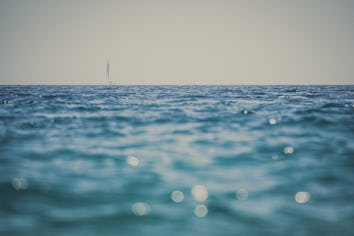
Trogir Sailing Itinerary - A UNESCO World Heritage Treasure
Trogir is a coastal town in the Croatian region of Dalmatia, located just 30 km west from the city of Split. This historic city sits on a small island between the Croatian mainland and the island of Čiovo, separated from the mainland by canals. Trogir was founded by Greek colonists from the island of Vis in the 3rd century BC. The Greeks were later succeeded by the Romans, who developed Trogir into an important port on the Adriatic. After several centuries of turmoil, Trogir came under the rule of the Venitian Republic, where it prospered for nearly 400 years. During that time, Trogir developed a strong economy and became one of the most important cities in the Adriatic. Under Venitian rule, Trogir created numerous works of Renaissance art and architecture, many of which can be seen today. Trogir’s high concentration of palaces, churches, and fortifications led to the city’s inclusion on the UNESCO World Heritage List in 1997. Today, Trogir is a popular tourist destination, equally attracting families, sailing enthusiasts and culture-seeking tourists. Sailing enthusiasts visiting here will appreciate the well-protected marina and the proximity to famous Croatian islands of Hvar, Brač and Korčula.
Ladislav - 26 August 2020
Italy Destination Guide - Majestic Cities and Spectacular Coastlines
The Mediterranean country of Italy is located in the southern part of central Europe, occupying the boot-shaped Apennine Peninsula. Italy’s geography varies from the snow-covered peaks of the Alps mountain range in the north to the sunny shores of the island of Sicily in the south. Including the two biggest islands on the Mediterranean, Sardinia and Sicily, Italy has over 7,500 km of coastline on the Adriatic, Ionian and Tyrrhenian sea. Due to its location in central Europe, Italy was home to many ancient tribes and empires throughout its rich history, none more famous and influential than the Romans. The Roman Empire conquered most of Europe and, at one point in the 2nd century, the Empire spanned from Scotland to India. At the peak of its power, during the 200 years of Pax Romana, Rome was the leading cultural, political and religious centre of Europe. Before the Empire collapsed in the 5th century, Roman ingenuity ensured groundbreaking development in law, technology, architecture, economy and art. Italy continued ununified through the ages, with several city-states and maritime republics, such as Venice, prospering through trade, commerce and banking. The Renaissance period, which originated in Italy, saw brilliant artists create some of the most famous pieces of art in human history. Today, the Italian capital of Rome serves as a time capsule, presenting the wonders of Italian history to millions of curious tourists.
Ladislav - 31 July 2020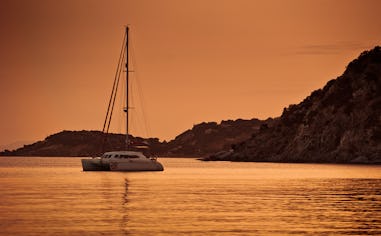
Catamaran vs monohull
A Catamaran sailboat has become a very popular type of boat to charter, offering comfort and a laid-back experience. But if you’re more interested in traditional sailing, you might want to consider a monohull sailboat. Adrenaline seekers will also have more fun sailing a monohull, especially under full sails. Read on to find out more about the difference between catamarans and monohulls.
Ladislav - 28 July 2020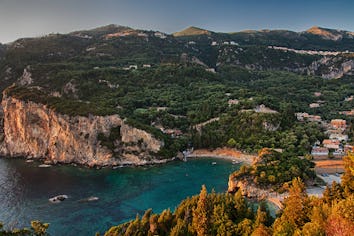
The Essential Corfu Destination Guide
Corfu is the northernmost Greek island located in the Ionian sea, just off the coast of Albania. The island spreads over 590 km2 and is the second-largest Greek island in the Ionian Sea. Due to its size, the island offers a variety of scenery with tall mountains overlooking sandy white beaches and blue sea. Corfu is one of the greenest and most beautiful Greek islands. Throughout history, Corfu served a vital strategic purpose, leading to the intense fortification of the island. The Venitian Republic ruled the island for nearly four centuries, which resulted in some stunning architecture. The picturesque old town in the city of Corfu has been on the UNESCO World Heritage List since 2007. An exciting blend of rich cultural heritage, stunning beaches and historical architecture make Corfu an ideal holiday destination.
Ladislav - 20 July 2020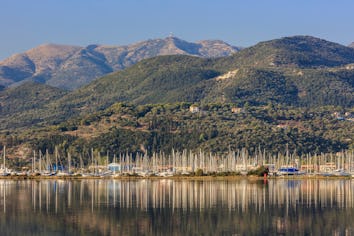
Lefkada Destination Guide
The Greek island of Lefkada is situated in the Ionian Sea, off the western coast of Greece. It is the fourth largest island in the Ionian Sea, spanning over 300 km2. Lefkada is a mountainous island, with some peaks above 1,000 m. Despite its size, only about 22,000 people live on the island today, making it an ideal place for those seeking to avoid the crowds. Lefkada is considered one of Greece’s most beautiful islands with numerous breathtaking beaches and coves scattered around the island. A stunning contrast of white cliffs surrounding the island with the blue sea makes for a spectacular sight. Despite the cliffs, the island is easily accessible as it is connected with the mainland via a floating bridge.
Ladislav - 20 July 2020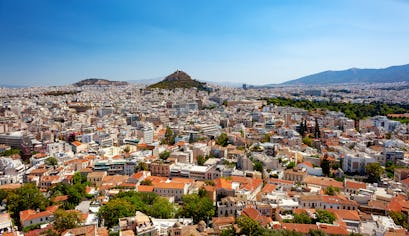
Athens Destination Guide - The Cradle Of Western Civilisation
The Greece capital of Athens is one of the oldest and most significant cities in the whole of human history. Considered the cradle of western civilisation, this magnificent city is one of the cultural capitals of the world. Believed to be over 3,400 years old, Athens lies 5 miles inland from the Aegean sea closed off by hills to the east and west. Despite not being directly coastal, Athens has one of the most important and busiest ports in Europe. Located in the Phaleron Bay, Piraeus port is the largest passenger port in Europe. Over 3 million people live in the Athens Metropolitan area today, which is nearly a third of the whole population of Greece.
Ladislav - 20 July 2020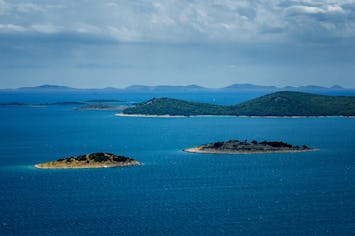
Explore Kornati's 140 uninhabited islands
Kornati islands are a cluster of 140 uninhabited islands, islets, and reefs, covering a total area of 320 km2, located in the Croatian region of Dalmatia. Often described as “nautical paradise”, this archipelago offers numerous hidden coves and secluded bays. With no permanent residents, the islands nature has flourished, resulting in over 850 animal species present on the islands. The underwater world flourished as well, with 353 species of algae and three species of aquatic flower plants present in the area. To preserve its natural beauty, 89 out of those 140 islands were classified as a National Park in 1980. Today, the Kornati National Park each year attracts thousands of tourists looking to explore this true gem of the Adriatic.
Ladislav - 20 July 2020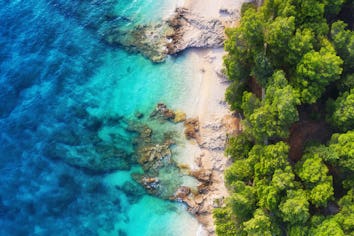
Take in The Breathtaking Beauty on a Hvar Boat Trip
Hvar is a part of the Middle Adriatic island group and is the fourth largest island in the Adriatic Sea. It is, however, the longest island in the Hvar is a part of the Middle Adriatic island group and is the fourth largest island in the Adriatic Sea. It is, however, the longest island in the Adriatic sea, stretching for 72 km. Due to its strategic position, the island of Hvar has always been an essential foothold in the Adriatic. The ancient Greeks colonised the island in the 4th century B.C., establishing the town of Pharos which is today known as Stari Grad. Throughout history, many different cultures and civilisations left their mark on this beautiful island, leaving us today with plenty of archaeological findings and artefacts. Today, the island of Hvar is one of Croatia’s top holiday destinations with a 140-year long history of organised tourism.
Ladislav - 20 July 2020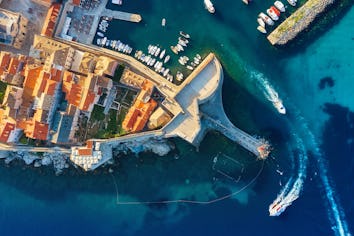
Dubrovnik Sailing Guide - Make the Most of Your Sailing Adventure
Dubrovnik is a world-famous travel destination, and one of the most visited cities in the Mediterranean. Imposing city walls, historical landmarks, delicious local cuisine and breathtaking scenery, attract waves of tourists each year. One of Croatia's brightest symbols, this proud city has flourished throughout history, ever since the Greeks and Romans ruled the Mediterranean. The city has been a trade and political foothold in the southern Adriatic since its inception. Since 1979 Dubrovnik has been listed as a UNESCO World Heritage site since 1979.
Ladislav - 20 July 2020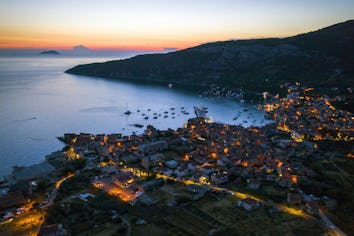
Vis Destination Guide - All You Need to Know
The Croatian island of Vis is the farthest inhabited island off the Croatian mainland, located just 60 NM from the Italian coast. The island sits just west of the island of Hvar and 25 NM away from the island of Korčula to the east. Greek settlers founded a colony in the 4th century B.C. and named it Issa, which is how the island got its name. Like many other ancient settlements on the Croatian coast, Greek rule on the island was succeeded by the Romans. Until the end of the 18th century, the island of Vis was under the rule of the Venice Republic. During their ruling, large settlements of Komiža and Vis developed along the coastline. The Venetian influence is noticable in architecture found on the island, while the specific dialect spoken locally is Venetian in origin. Due to its strategic location, the whole island was used as a Yugoslavian military base which saw the island isolated from all foreign visitors until 1989.
Ladislav - 20 July 2020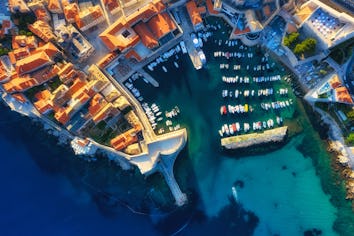
Croatia Country Guide - Experience The Perfect Break
Croatia sits on the border of southern and central Europe, acting as a gateway to the Balcan peninsula. Croatia shares borders with Hungary to the northeast, Slovenia to the northwest, Serbia to the east and with Bosnia and Herzegovina and Montenegro to the southeast. It also shares a maritime border across the Adriatic with Italy to the west. Although small in size, Croatia has significant geographical diversity. From the plains of Slavonia in the east, hills of north Croatia to mountains that divide central Croatia form the beautiful coastline and its thousand islands. Croatia today has a population of around 4 million people with almost one million of them living in the capital city of Zagreb.
Ladislav - 20 July 2020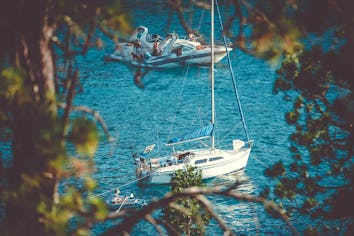
Skippered vs bareboat yacht charter
Essentially there are three types of yacht charters: Bareboat - comes without a skipper or any crew Skippered - comes with a skipper Crewed - comes with a skipper and a crew, who as well as helping with navigation and sailing also prepare meals and drinks for you
Ladislav - 08 July 2020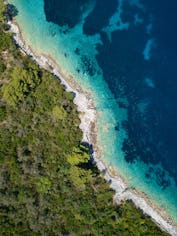
Kornati Islands Sailing Guide - Embark on an Unforgettable Sailing Trip
The Kornati archipelago is the densest group of islands in the Mediterranean. It consists of 140 islands, islets and rocks, with a total surface of 320 square kilometers. The name of the archipelago derives from the name of the largest island, Kornat. 89 of the 140 islands of the Kornati archipelago were classified as a national park in 1980, protecting the islands and their marine surroundings. Today, it is one of the most popular destinations for sailing holidays in Croatia, offering an abundance of natural beauty.
Ladislav - 08 July 2020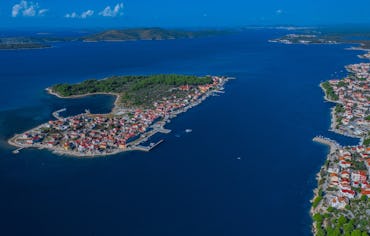
Kornati Islands Destination Guide - Nature's True Masterpiece
Kornati islands are Mother Nature’s true masterpiece. They consist of 140 uninhabited islands, islets and reefs covering over 300 square kilometres. The Kornati archipelago is the largest and densest in the Adriatic sea. Kornati National Park makes up most of the Kornati archipelago with its 89 islands spreading over a 220 square kilometre area. The Kornati island tour is among the most praised tours in Croatia. Kornati's marina has been a regular destination for nautical aficionados since the early 1970s. As a result is has become a regatta centre of Northern Dalmatia.
Ladislav - 08 July 2020
Top Sailing Knots
Knots have been widely used throughout human history and are believed to be one of the cornerstones of sailing. Initially used as a binding mechanism, the number of different knots grew exponentially over time. As a result the number of applications for these knots also evolved. During the golden age of exploration, as ships became larger and more complex, new knots and applications emerged. One of the most important requirements of any sailor was an ability to tie an appropriate knot. As technology advanced and sailboat demand dwindled, so did the art of knotting. However, learning how to tie basic knots is essential to your safety when you venture out to sea even today. As with learning how to tie your tie or laces, practice and repetition is key to mastering sailing knots. Below we list some of the most commonly used knots in sailing with basic instructions on how to tie each of them.
Ladislav - 08 July 2020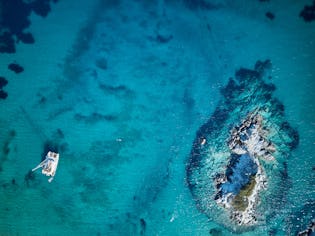
Plan the perfect route
Organising a sailing holiday can be quite a bit more challenging than your ordinary summer holiday. There are several things that need to be considered beforehand. However, if done correctly, a sailing holiday will become your best holiday decision yet! In this modern era, information about almost everything is just a click of a mouse away. So why not use a boat route planner to prepare for everything you will need for a sailing adventure.
Ladislav - 08 July 2020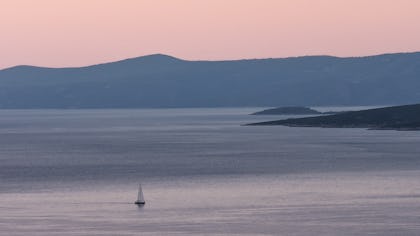
Croatia Sailing Guide - The Ultimate in Sailing Destinations
Croatia sits on the northwestern part of the Balkan Peninsula. The country borders Slovenia and Hungary to the west and north, Serbia and Bosnia to the east. The biggest maritime border is with Italy. Despite its small size, Croatia boasts significant geographical diversity. Today, Croatia is considered one of the top tourist destinations in Europe.
Ladislav - 08 July 2020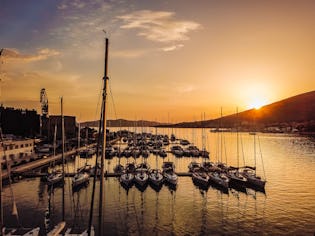
Pula Sailing Guide - Set Sail from the Ancient City
The Croatian city of Pula sits on the southwestern part of the Istrian peninsula and is the biggest and most important city of the Istria region. Pula is an ancient city, with the first mention of the city dating back to the 3rd century B.C. The city became a Roman colony in the 1st century B.C, which resulted in intense development of the area. Today, Pula is dominated by breathtaking Roman architecture, most notable being the excellently preserved amphitheater. The old town is filled with Roman artefacts, churches from all historical periods, monuments, and museums. This makes Pula an ideal destination for anybody looking to fill their vacation with a touch of culture and history.
Ladislav - 08 July 2020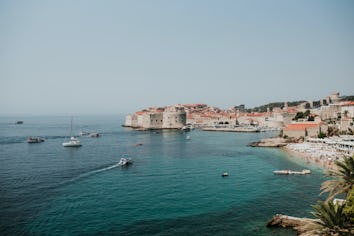
Set sail from Dubrovnik - 'The Pearl of the Adriatic'
The Croatian city of Dubrovnik is a world renowned tourist destination and one of the most popular places to visit in the whole of the Meditteranean. Beautiful architecture highlighted by the famous city walls creates a unique sight which leaves visitors in awe. Also known as Ragusa, the city of Dubrovnik was an important political and trade foothold on the Adriatic throughout its history. The city has been on the UNESCO World Heritage list since 1979.
Ladislav - 08 July 2020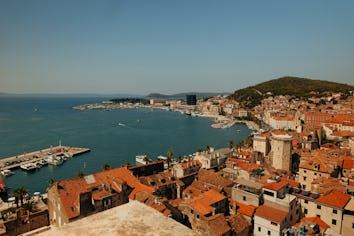
Split - the Adriatic's most vibrant port
Split is the second biggest Croatian city and one of the most visited cities on the Adriatic coast. Its location and good transport connections means it’s a perfect starting spot for visiting the whole of Dalmatia. The city itself offers a unique blend of rich history, beautiful architecture and vibrant nightlife. The main attraction for history buffs is the famous Diocletian Palace, built by the Romans in the 4th century and declared a UNESCO World Heritage Site in 1979.
Ladislav - 08 July 2020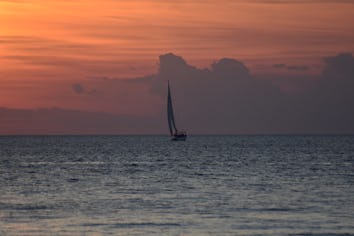
Split Sailing Guide - The Sailing Hub of Croatia
The Croatian city of Split sits on the Adriatic sea in the foothills of the Kozjak and Mosor mountains. Split is the second largest city in Croatia and the biggest city of the Dalmatia region. It has approximately 180,000 people living in its urban area. Its architecture, rich cultural heritage and beautiful landscape make it the perfect holiday destination.
Ladislav - 31 May 2020

